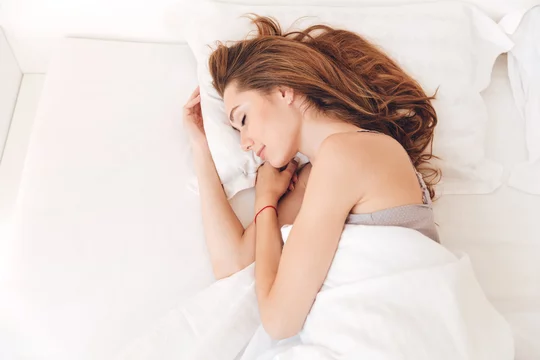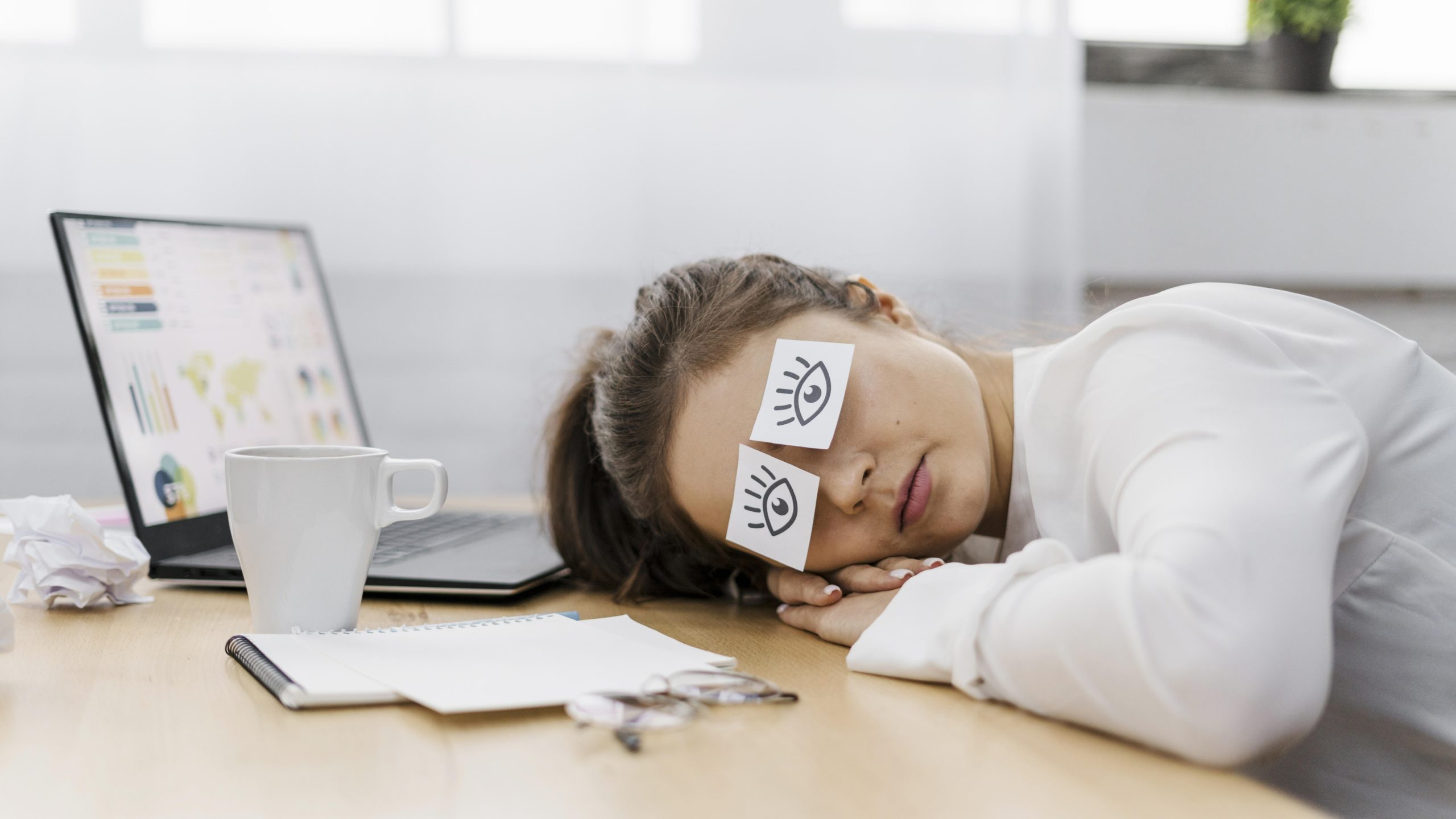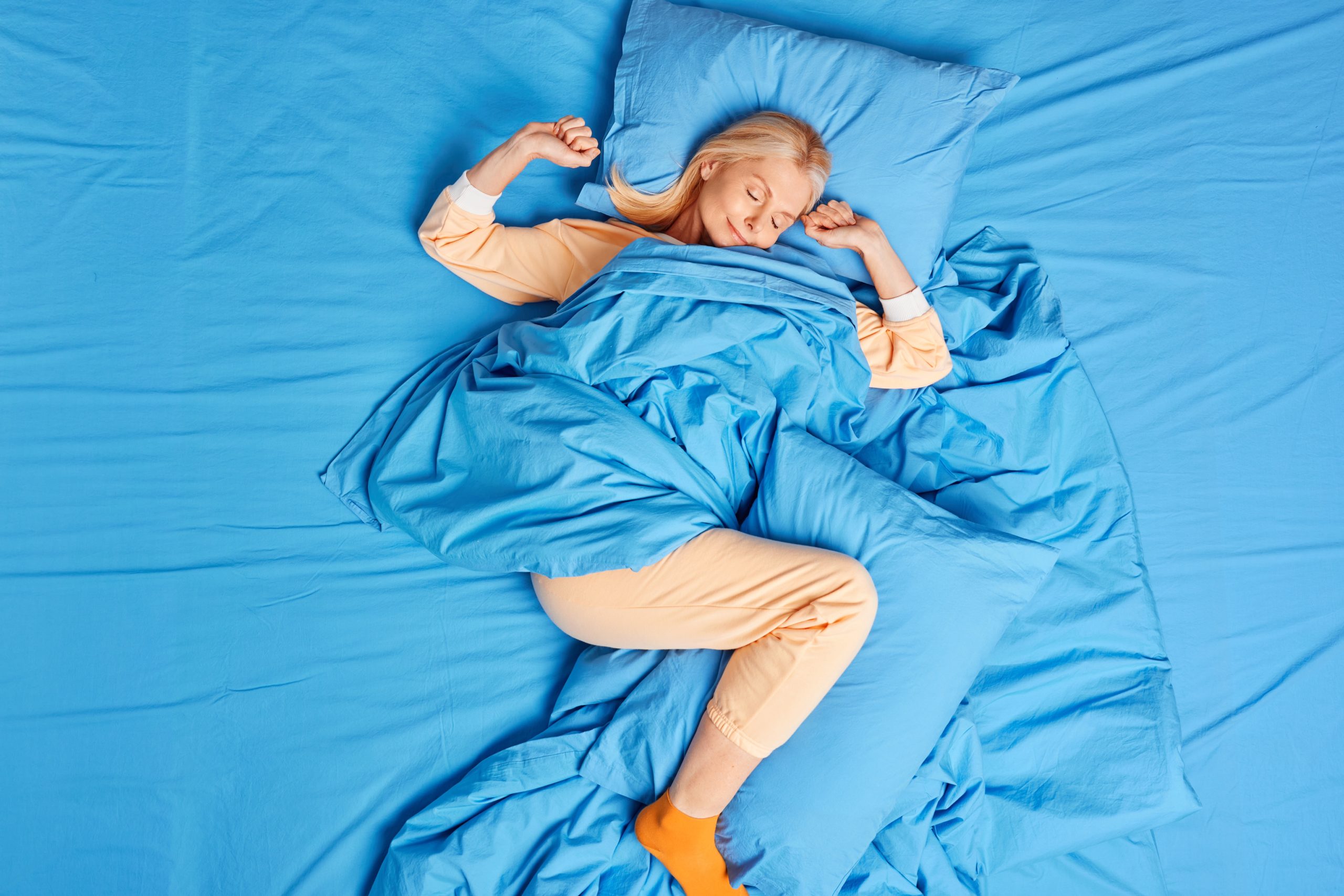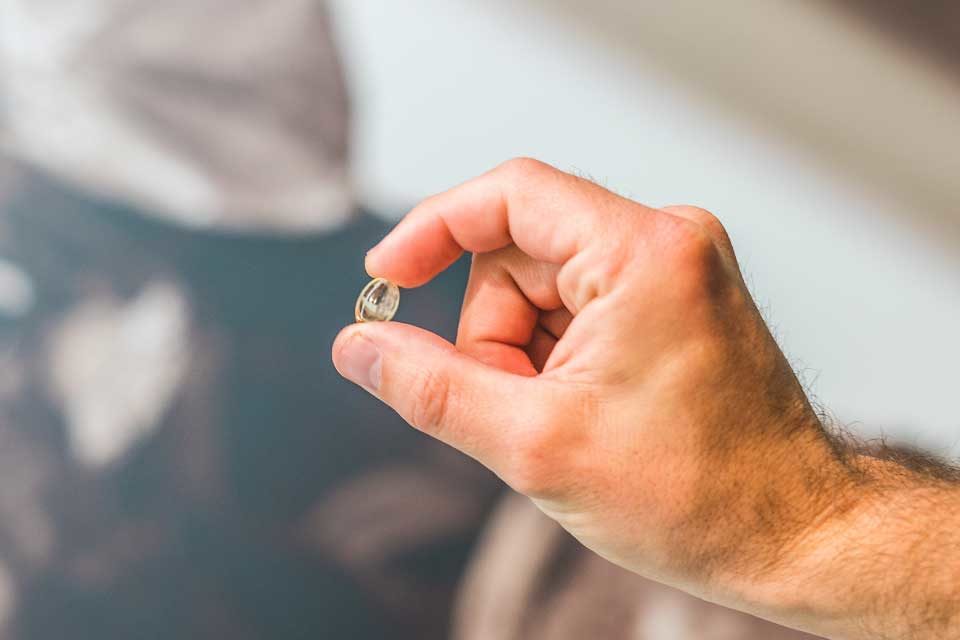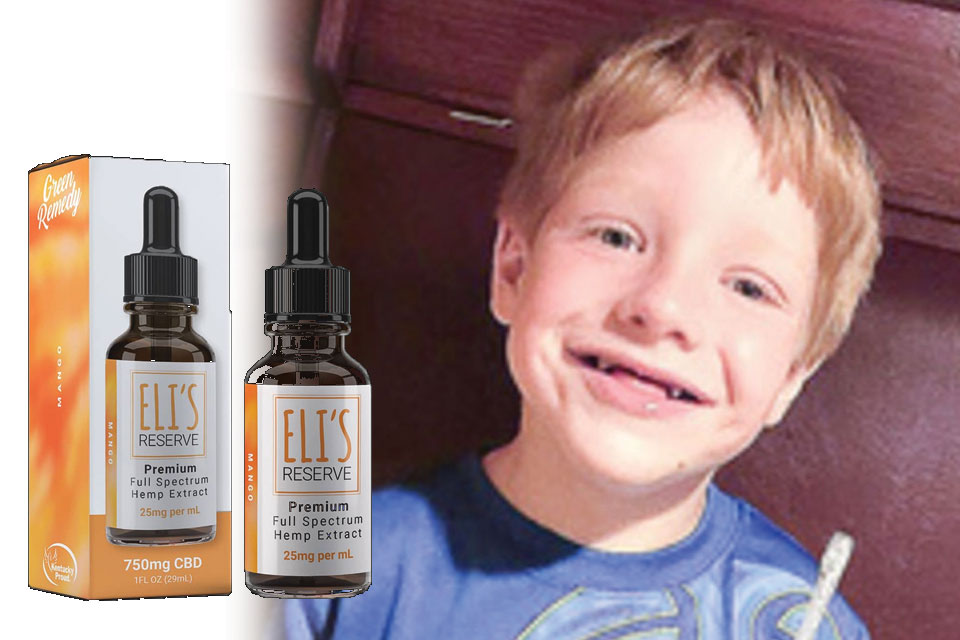Can CBD really help with anxiety and better sleep? In this article we will explore the many things that can help reduce anxiety, including CBD, that will aid in a good night’s rest! Read on…
THE IDEAL
Ahhh. It’s been a long week and finally, FINALLY you get to fall into your bed. The bedding is freshly laundered. There is nothing on the agenda tomorrow morning. No alarm needs to be set. You wake up refreshed! Someone says “good morning” and you believe it! You feel… optimism.
We’ve said it and heard it said after a good solid sleep - “I don’t remember the last time I slept like that”. The things you have been putting off - even things you used to enjoy - don’t feel so heavy after a good night’s rest. In fact you have energy and the desire to do them rather than just think about them. A well rested body and mind can change your perspective entirely.
Sleep. We all know it’s important. We feel like a new person when we get our 8 hours in. We feel focused, more energetic, and generally happier. A habit of 7-9 hours of nightly sleep is really one of the pillars of overall wellness.
THE REALITY
For some people sleep deprivation is a constant foe. Nearly all of us suffer from sleep deprivation at least one day a week and that day is inevitably our worst day. These are the days when the first sip of coffee can’t arrive to your lips fast enough. The coffee helps temporarily but an hour later you’re reaching for another cup. And then the cycle begins - that mid afternoon cup that you needed to get you through? It keeps you up an extra hour or two when you should be. . . sleeping.
The antidote to needing more and more coffee? Better sleep.
If you are like 35.2 percent of Americans you don’t get the recommended 8 hours of sleep a night. Half of Americans surveyed say they feel sleepy during the day for 3-7 days a week. Imagine going through half or more of your life in a fog of drowsiness.
We’ve all seen the effects of sleep deprivation on a toddler. The toy that they liked five minutes ago suddenly gets an angry toss across the room. The snack that they love seemingly more than their mom gets swatted away. If they reach peak levels of tiredness the wailing and gnashing of teeth begins. We all know what they need most is a nap. After that nap they are back to their happy selves. That favorite toy and snack have restored value. Mom and Dad are once again friend and not foe.
We aren’t much different than the toddler in the above scenario, really. Our tantrums take on different forms but we each still have them. Have you ever side-eyed your partner for . . . breathing too loud? No? Us neither. But we can all admit to daydreaming about the luxury of an afternoon nap on a Tuesday afternoon.
A solid 7-8 hours of sleep can make the difference between the you that wants to tackle your to-dos or the you that is already thinking about bedtime at 3 in the afternoon.
THE RESEARCH: WHEN YOU DON’T GET ENOUGH SLEEP YOU MAY EXPERIENCE…
-
Excessive daytime sleepiness. When we feel this way we are more likely to avoid things we need to do for our health, like exercise. In a worst-case scenario we may drive a car when we are drowsy.
-
Impaired memory. Our best thinking is done when we are well rested. We retain information better when we are alert.
-
Anxiety. The things that we need to do now have to be done through a fog of drowsiness. That 3 o’clock hump can feel insurmountable when there are still important things on your to-do list and at least 6 hours until bedtime.
-
Moodiness. Relating to those we love or have to work with is done best when we are not moody from lack of sleep.
-
Disease. Most serious of all, according to the Cleveland Clinic chronic sleep deprivation can contribute to more serious health problems such as high blood pressure, obesity, depression, lower immunity, stroke, and heart failure.
THE GOOD NEWS
We don’t have control over all aspects of our health. Some things we are just predisposed to. Sleep is one of those things that we can do something about!
(The caveat is if you have a medical issue. Please see a professional if you suspect you have a sleep disorder.)
In his NYT best-selling book Atomic Habits, James Clear states, “Habits are the compound interest of self-improvement. The same way that money multiplies through compound interest, the effects of your habits multiply as you repeat them.”
Imagine the compound effects of sleeping well every night. Imagine not having to fight the heavy drowsiness of late afternoon. Imagine being focused for the professional and creative things you want and need to do. Imagine your body not accumulating the compound effects of sleep deprivation - the more serious ones related to preventable diseases.
We don’t have to imagine. We can decide to participate in the self care of prioritizing sleep.
That doesn’t happen accidentally. We help usher in great sleep with habits and routine. A great bedtime routine signals your body that it is time to wind down. Those signals have a direct effect on circadian rhythm and the release of melatonin that are critical to sleep.
Before we dive into the good habits and a routine that will help aid your sleep, let’s consider a few habits that may prevent you from the ideal 8 restorative hours of sleep.
THINGS THAT PREVENT US FROM SLEEPING WELL
-
Mid-to late afternoon caffeine. The half life of caffeine is 4-6 hours. That means that 4-6 hours after consuming caffeine half of it is still active in your body. That afternoon cup is doing more than giving you a pick-me-up for the last push of the day. Keep in mind that there is caffeine in tea, some sodas, energy drinks, and chocolate. Antidote: Commit to having your last cup of joe no later than 1pm (or earlier, depending on your optimum bedtime).
-
Screens. The blue light emitted from your phone and computer can keep your body from producing melatonin and becoming sleepy long after your body is actually ready for sleep. Have you ever experienced drowsiness that then goes away after scrolling for a bit too long on social media? You’ve missed your window to fall asleep and it can take a while for it to return. Antidote: Commit to putting your phone down 1 hour before bedtime.
-
Anxiety and stress. Overthinking and ruminating. For many, bedtime is the worst time of day for this as we power down our phones and turn off the lights. We will discuss below how CBD can help reduce anxiety and thus increase relaxation. Antidote: Take a daily dose of CBD.
-
A different bedtime every night. Bedtimes aren’t just a good idea for children. If you commit to a bedtime at the same time every night your body, via your circadian rhythm, will start to signal to you when it’s time to go to bed, and wake up. If you are in sync with this rhythm there is a good chance you wake up before your alarm even goes off. Antidote: Set a bedtime that is within a range of 30-60 minutes, for example, between 9:30-10:30 pm.
-
Alcohol. It may help some to fall asleep, but alcohol consumption before bed has also been shown to cause disruptive sleep. Have a few drinks right before bed and your 8 hours of sleep will potentially feel like significantly less. Antidote: Try to limit alcohol consumption to no sooner than 2 hours before bedtime.
-
Our bedrooms. Ever tried to fall asleep when you have a pile of dishes on the dresser, a few loads of laundry in that corner chair, or a bright light shining in from the window? A peaceful and dark room can help your mind relax, rather than ruminating over what needs to be done. Antidote: Try to keep dishes out of your room, laundry out of sight, and your room as dark as possible. Use an eye mask if you need to.
-
Bedroom Temperature. Temperatures that leave you too hot or too cold will affect the quality of sleep. The best temperature for sleep? 65 degrees - with a warm blanket, of course. Antidote: Program your thermostat to change to your ideal sleeping temperature 30 minutes before bedtime.
Now that we have been reminded of what hinders a good sleep, let’s move on to a routine that can help.
A SOOTHING ROUTINE FOR MIND AND BODY
A good bedtime routine is worth its weight in gold.
We all have a routine in the bedtime hour(s) for good or bad. Some people have mastered the bedtime routine and it is centered around self care. They sleep like a baby because they are treating themselves like one in the best possible way. Soft lighting, a story, a song, and a comfortable, clean bed. Ahh. It’s relaxing just to think about.
If you already have at least one good habit at bedtime, piggyback one or several of the following additions. Treat yourself.
-
Turn off overhead lights in favor of a lamp or two. Bright lights signal your body to be on. You need to let it know it’s time to relax. Dim lighting helps.
-
Program or set your thermostat for 65 degrees. You will understand why the comforter got its name as you snuggle into bed in a few minutes when the temperature is just right.
-
Plug in your phone. Preferably out of reach of your bed.
-
Put on some soothing music. If it works for a baby it will work for you too!
-
Change your clothes. Get into a fresh set of sleeping clothes. This one seems obvious, but there are those who wear their lounging clothes to bed, dinner drips and odors included.
-
Wash & moisturize your face, and brush your teeth. This is for men and women. The oils on our face collect dirt and grime. Take a few minutes to treat yourself to a fresh, clean face and a clean mouth. We’ve all skipped this step before and we lay down feeling less relaxed.
-
-
Read a book. Read until your body tells you to close your eyes. Even the most gripping novel will not keep you up like the blue light of a screen. An extra bonus of this habit is that it will help you reach your reading goals!
-
Fall into a restful 8 hours of sleep in comfort and relaxation. Knowing you have taken care of yourself brings a sense of calm and relaxation.
THE ROLE OF CBD IN REDUCING ANXIETY AND AIDING SLEEP
If you are new to the world of CBD you may feel overwhelmed or confused about it’s benefits and uses. At the very least you’ve likely heard of CBD, driven past a CBD storefront, or seen it at your local grocery store. It is becoming increasingly popular as people figure out - usually by word of mouth - how beneficial it is.
According to this PubMed article discussing anxiety research, “We found that existing preclinical evidence strongly supports CBD as a treatment for generalized anxiety disorder…”. They go on to list other anxiety disorders that CBD has been shown to help with.
But how…?
The most profound and fun fact we like to share is that your body is equipped with a system that you may have never heard of. It is called the endocannabinoid system (ECS). According to Harvard Health Publishing “The ECS regulates and controls many of our critical bodily functions such as learning and memory, emotional processing, sleep,[emphasis added] temperature control, pain control, inflammatory and immune responses, and eating.” Wow!
Within the ECS is a vast network of cellular receptors that function together with cannabinoids. This is where CBD plays a critical role. Harvested from the hemp plant, CBD is a cannabinoid which supplements our own body’s production of cannabinoids, helping regulate sleep and anxiety (along with myriad other benefits).
Perhaps you’ve taken care of your bedtime routine but still lay awake, thinking and overthinking. Anxiety takes over and keeps you up. CBD may be the missing piece to your ideal bedtime routine.
We are so passionate that our CBD can help you in your pursuit of health and wellbeing that we want to offer you a 25% discount on our full spectrum hemp extract. We want 2022 to be the year that you discover the wonder that is CBD.
Use the code GR25 for 25% off your next purchase.
Our full spectrum CBD provides the ‘Entourage Effect’, working most effectively with the cellular receptors for maximum benefit. We have several flavors and sizes to choose from in our shop.
